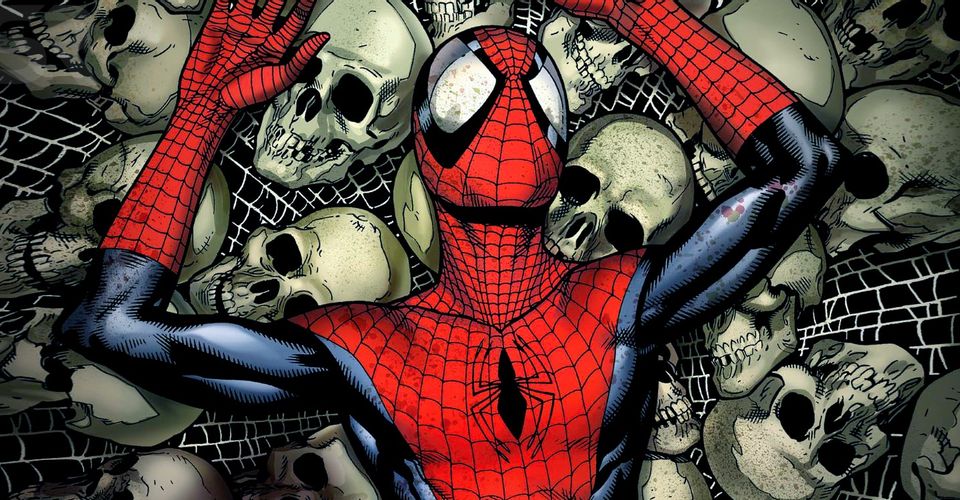Without His Powers, Spider-Man Would Die (of Clumsiness)

Spider-Man has often been portrayed as a reluctant hero, with Peter Parker wishing he could give up his superpowers and live a normal life. Some stories have even explored the idea by either re-imagining a version of Spider-Man who gave up being a hero, or by having Marvel’s main version temporarily lose his powers. But there’s a serious catch.
As much as he may forget it, Peter Parker is far more dependent on his superpowers — specifically his Spider-Sense — in his everyday life than he realizes. Which means he may not realize it, but if his wish to lose his powers ever did come true… he could accidentally kill himself faster than most fans would expect.
Let’s take a look at some everyday reasons Peter Parker needs his Spider-Sense, and how badly he would suffer if he ever completely lost it.
Everyday Uses for Spider-Sense

Most comic book fans accept that Spider-Man needs his Spider Sense when he’s out battling super villains. The heightened survival instinct alerts Peter if there are any immediate threats to his safety (from bullets to lasers to Doctor Octopus’ tentacles) and tells him just how to move and stay out of harm’s way. Thanks to this ability, Peter’s been able to use his strength, speed, and agility to their maximum potential almost from the start, despite the fact that he had no formal combat training.
However, Peter’s Spider-Sense also functions in his everyday life as well. In several backup stories published in The Amazing Spider-Man, Peter explained to Mary Jane (and the reader) how his Spider-Sense works. According to Peter, his Spider-Sense is always “on” and offers mild warning tingles whenever Peter is about to bump into objects or trip over something. Peter isn’t even aware of some of these low-level warnings (since they’re so much milder than the sharp tingling he feels while fighting), but he still listens to these tingles unconsciously. One comic book panel shows Peter wandering aimlessly around his messy apartment while engrossed in a book. Although he would normally trip over his dirty clothes or bump into furniture, his Spider-Sense faithfully guides him on the safest path, leaving Peter unaware of the multiple hazards he narrowly avoided.
Over the years, his Spider-Sense has only grown in power – which makes it useful both in Peter’s superhero and civilian lives. The danger sense can now warn Spider-Man of any poisons or toxins he’s about to consume – which means it can also tell Peter Parker if the milk he’s about to drink is spoiled. Spider-Man has also used his Spider-Sense to gamble in superhero charity poker games (as it alerts him to threats to his financial well-being), meaning it’s possible the sense can even tell Parker what supermarket items have the best prices.
Without Spider-Sense, Peter Would Be in Mortal Danger

Okay, so the Spider-Sense offers Peter useful tips and warnings he can use in his daily life. But why would it be hazardous to his health if he ever lost it permanently? The scary truth is that Peter has unknowingly grown so dependent on his Spider-Sense that if he ever lost it, he would become more vulnerable to everyday hazards than an ordinary person.
Case in point: Spidey never needs to look where he’s firing his web lines because his Spider-Sense informs him of the best places to shoot his webbing (and tells him to avoid weak structures that can’t support his weight). Thus, Spidey has grown accustomed tonot looking where he’s going, even when he’s Peter Parker. That kind of attitude almost guarantees Peter will get hit by a car the next time he crosses the street.
It’s also worth remembering that before he got his powers, Peter Parker was a clumsy, uncoordinated teenager whose body was still developing. His spider powers gave him a massive overcompensation by providing him with superhuman balance, awareness, and coordination. However, if he ever lost his powers, his body would suddenly become overly clumsy as he had never learned to naturally develop his regular equilibrium. It would be like taking the glasses from a severely nearsighted person and forcing them to engage in complex visual tasks.

One comic book storyline in The Amazing Spider-Man #341 reveals Peter once tried to remove his powers with a unique type of radiation. He found he was still well-coordinated and believed his years of being Spider-Man had honed his natural athleticism. However, he later found the radiation only suppressed his powers. This meant his spider abilities, including his Spider-Sense, were still working (likely overtime) just to keep him alive. This is probably true of all the other times Spidey temporarily lost his powers – if they’d ever been completely erased, Peter wouldn’t be able to function on his own.
So, Peter might want to rethink his desire to be a normal guy. Sure, being Spider-Man is dangerous – but it might be even deadlier to just be ordinary Peter Parker.
About The Author


















